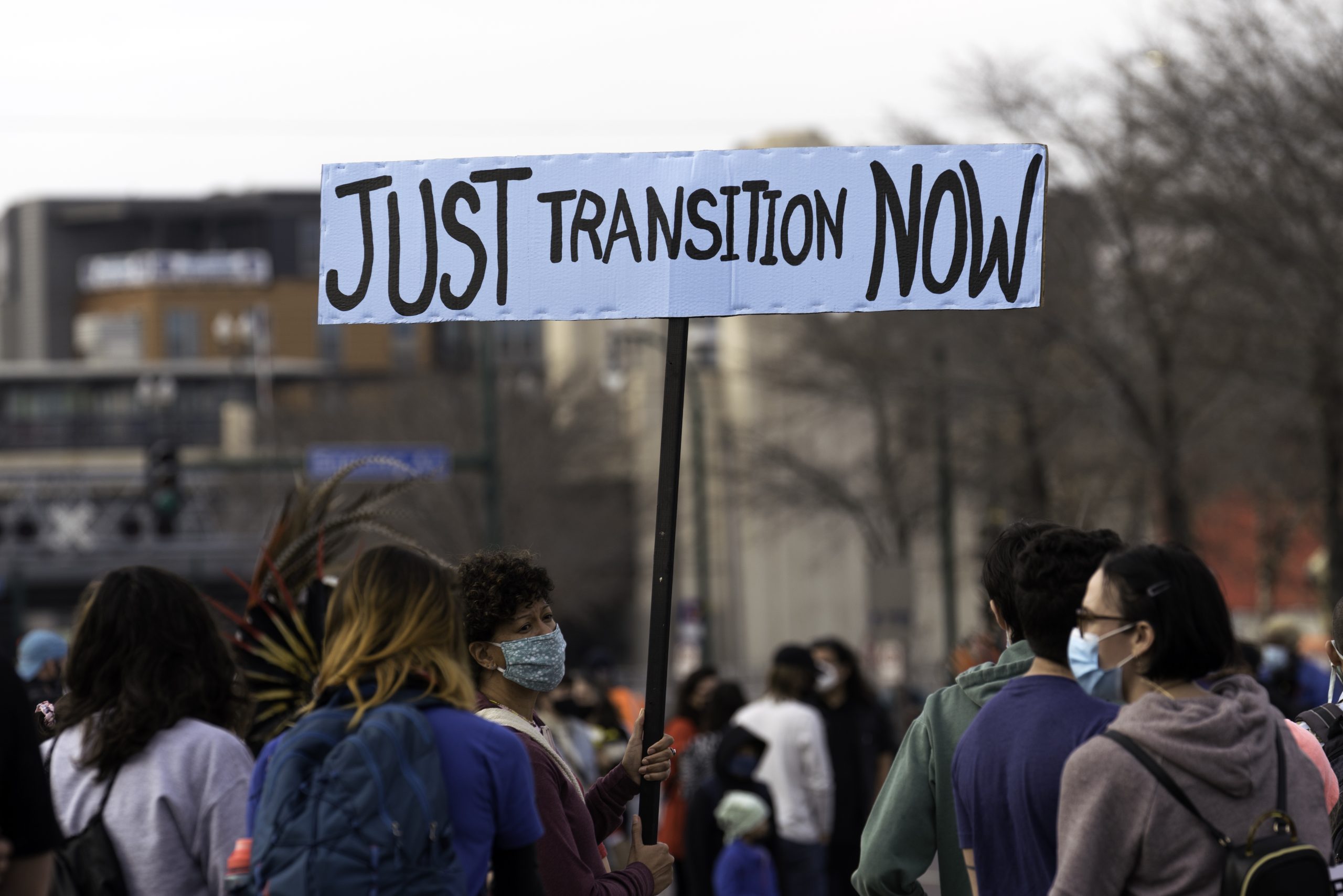
David Hamon, Research Associate, writes that the notion of Just Transition’ is widely used to argue for mitigating the impact on workers and communities of industry becoming cleaner and more sustainable. Our study of activist campaigning shows what businesses can learn, and expect to gain, from applying its principles.
Activists have been talking about the Just Transition since the 1990s, but the past two years have seen rapid gains in campaigning activity. Surges in activist attention are a sign that businesses should take notice, and sure enough, discussion of the Just Transition is rippling across from the activist agenda to the political and public arenas. The ILO, OECD, and World Bank have published definitions of the concept, and it is mentioned in the UN’s Sustainable Development Goals, the Paris Climate Accords, and the EU’s European Green Deal. The latter gave rise to a Just Transition Fund, with the aim of providing economic support to regions transitioning away from ‘polluting’ economies.
Broadly, activists understand the Just Transition as a move towards a fair and sustainable economy, considering the rational interests and subjective perspectives of all stakeholders – including workers and communities dependent on ‘polluting’ industries. They advise businesses and governments to not simply design transition policy with workers and communities in mind, but also actively involve them in the consultation, development, and implementation process – transition policy should be community designed and led. The reasoning is not only about morality. Activists argue that community inclusion is an opportunity for industry to design better policies and see them properly implemented.
In justifying their demand for community inclusion, activists draw on the example of the recent shift away from coal in Europe. For generations, communities in coal-dependent regions played a proud role in fuelling economic development, only to be abruptly told that their industry was dirty, harmful, and needed to be extinguished. Among smoking embers, these communities found little support; instead only a dearth of jobs and money, and social upheaval. In the wake of this upheaval, largely isolated initiatives saw local communities, governments, NGOs, and businesses come together to develop plans for the transition that considered the interests of all. NGOs such as WWF, Bankwatch, and IDDRI have lauded these examples as best practice for future transitions.
Campaigning rhetoric also highlights the destabilising effects of ‘unjust’ transitions. The rapid move away from coal in certain U.S. states – with climate-concerns at the fore of the narrative – has been cited as a reason for surprise swings towards Trump in the 2016 presidential elections. Across the Atlantic, the eruption of the 2018 Gilet Jaunes protests was partially attributed to a feeling among the working class that they were being unjustly burdened with the human costs of climate policies, such as tax rises on fuel. In both cases, a desire for a collective voice at society’s negotiating table was made very clear.
According to activists, the benefits of worker inclusion are twofold – better policies and better outcomes. Where communities see themselves reflected in the design of a policy, they will be more receptive to it, taking ownership of it as opposed to being dragged along for the ride.
Activists also claim that workers in key industries are ready to take part, with surveys conducted among French and North Sea oil and gas workers indicating that a majority are concerned about job security and interested in transitioning to work in renewables, but do not have confidence that they will be supported in doing so.
Finally, placing community inclusion at the centre of the Just Transition provides a rare opportunity for key industries to earn activist praise and recover some of their social operating license, which is fast eroding amid rising climate alarm. It also brings industry in line with the recommendations of the UN and other international organisations, whose statements activists often use to nail businesses to the post.
Against a backdrop of soaring costs of living, recent record profits for major multinationals have enabled activists to develop their narrative of corporates as malign actors. Current instability is bringing real grievances for ordinary citizens, and in light of growing economic and political disruption, businesses would do well to engage with activist demands for worker inclusion in developing robust and adaptable systems for stewarding industries – and society – through the coming transitions. The need for rapid adjustment will not diminish with time, and on the long road ahead, businesses will want workers by their side.
What our clients say
What our
clients say
“In our experience, SIGWATCH is one of the few sources of ESG data we can absolutely trust to be reliable.”
“Our company is based in Japan. Most employees are Japanese and we don’t really know what is happening around the world. SIGWATCH gives us visibility of the global ESG issues and trends we need to have on our radar.”
“With SIGWATCH, we’re able to absorb NGO data in an awesome way that
simply wouldn’t be possible otherwise. We can hear the NGOs’ voice, to better
strategize and get ahead of trending issues.”
“With social listening, we’re limited to knowing what people are saying only about OECD. With SIGWATCH, we see not only what is being said about us, but also what is being said about everyone else.”
“A lot is said and written about sustainability and ESG every day but no one,
apart from SIGWATCH, provides the big picture, SIGWATCH offers a comprehensive overview of what’s happening in the corporate sustainability
world rather than just a narrow snapshot.”
“SIGWATCH is a good source to show that NGOs are watching us and watching our clients, and we definitely need to be aware of the issues they are bringing up.”

